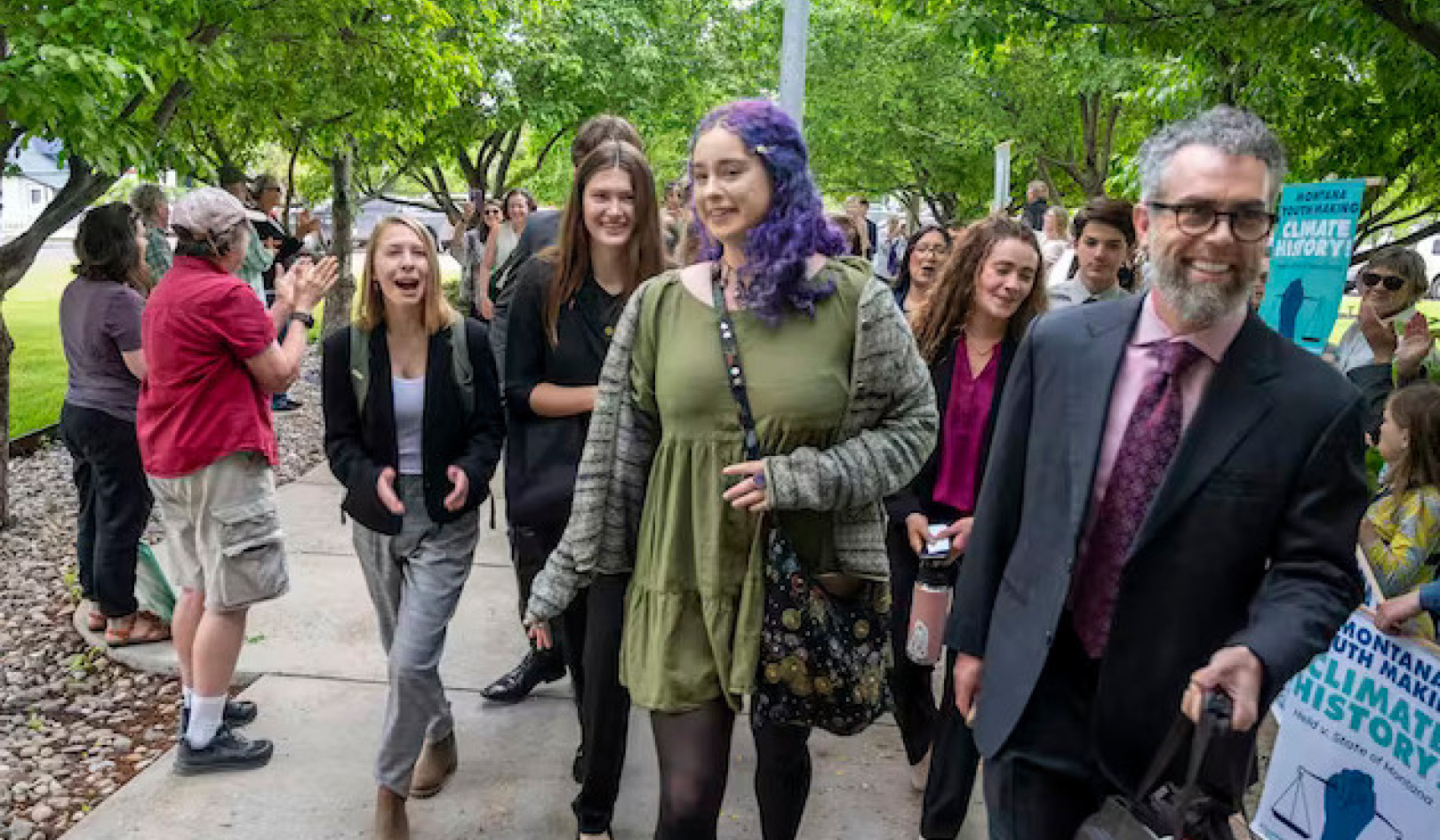
Access to healthcare has been, and is still, a major issue facing Americans, especially those who are low-income or uninsured. There are plenty of arguments against this fact; for instance, Idaho senator Raul Labrador recently said in a town hall meeting that, “nobody dies because they don't have access to health care.” This single line caused waves of outrage throughout the crowd that were immediately palpable, and the backlash is still coming in from every side. Even in a piously Republican state, people know the difference between facts and fluff.
Sorry, Labrador. That’s simply not the case. Taking insurance away from people absolutely does result in deaths: between 2005 and 2010, lack of health insurance killed three people every hour, and this issue was faced by every single state. Somewhere between 20,000 and 45,000 Americans die each year from a lack of health insurance, and uninsured individuals have a 40 percent higher chance of dying than their insured counterparts. Furthermore, it had been estimated that by 2025, deaths due to lack of insurance would dramatically decrease thanks to the ACA.
So, how can anyone in their right mind say that completely repealing the ACA won’t kill anyone? I’m sorry, but those statistics (which are all based on factual evidence,) certainly prove one thing:
Repealing the ACA will kill people. Lots of people.
End. Of. Story.
What's Death Got To Do With It?
But, is death really all we should be focusing on? What about general health and quality of life? Should we be okay with the fact that hundreds of thousands of our nation’s citizens are suffering unnecessarily?
The argument that emergency rooms are being abused doesn’t stand up to scrutiny. If it’s someone’s only option to get better, they’re going to utilize it. And further, the argument that emergency rooms are available to everyone does not put out the “no access to health care” fire. Just because an emergency room will admit anyone in need of medical care does not mean that they get treated.
If an uninsured individual shows up at an emergency room with a non-life-threatening issue, they will most likely be handed a temporary dose of medication and a referral to a specialist that won’t provide treatment without prepayment. Many of these people won’t even be diagnosed while admitted, which means they will leave the hospital not knowing what is wrong with them, with a referral to a doctor that won’t treat them unless they pay a huge upfront fee that they can’t afford.
Would you call this treatment? Would you call this access to healthcare? I wouldn’t, and if you don’t think that’s really the case, let me tell you a little story from personal experience.
My Emergency Room and Health Insurance Experience
When I was 21, I was in an accident that left nerve damage all over the right side of my body, and most of my right leg was paralyzed. I was told it would take years to recover, if it ever did, and so I tried to get back to my normal life after a brief period of acceptance and transition. I attempted to go back to my old job, with accommodations, but that didn’t work out. I spent some time trying out other jobs that weren’t so physically demanding, and I ended up messing up my circulation and my lower back.
The back issues got so bad that I was bedridden, and I could no longer work. I had no insurance. I spent the last of my money going to a couple of sessions with a chiropractor, which is something that had worked for me in the past. Unfortunately, that wasn’t what I needed at the time.
My next step was the emergency room, where I was given a prescription for painkillers and a referral to a back specialist. I made an appointment but had to cancel it because they wouldn’t see me unless I prepaid $280.00.
It wasn’t getting any better, so I asked my dad for help and he loaned me the money to set up another appointment. I went, they did a couple of tests (no x-rays or MRIs) and then recommended surgery, which I couldn’t afford because I had no insurance. I asked what the surgery would fix, and he told me it would be “exploratory,” to figure out what the issue was. He didn’t even know what my specific ailment was, but recommended that I somehow come up with four grand so we could take one tiny step toward getting better.
This simply wasn’t an option for me, so I left, defeated, and hoped that it would heal itself. I was growing worse and absolutely couldn’t work. I had to roll my office chair into the kitchen so I could scoot around in it to prepare my meals and clean up after myself. The pain was so bad that I couldn’t stand long enough to shower, and I could only bring myself to take a bath once or twice a week.
This went on for a month, and I went back to the emergency room. I told them that the previous plan hadn’t worked out, and that I needed a diagnosis so I could move forward. They did the Same. Exact. Thing.
Prescription for painkillers, referral to an even more expensive specialist that I never saw because I had no resources to pay him. I laid in bed for two months, barely taking care of myself, barely eating because I really didn’t need many calories. The only time I spent out of bed that entire two months was when my family came and kidnapped me for my birthday. They brought two cars so they could lay the seats down in the back of the mini van so I could lie down on the way to the hotsprings. It was a really thoughtful gesture: the trip was painful, but I could float freely in the hot water without the added pain of standing up. They packed a picnic and we hung out as long as we could stand the heat and drove home, singing along to the radio.
The rest of that two months was spent in bed, minus the few occasions I gently dragged myself out to use the restroom or fix a meal. I ran out of painkillers and had no option for a refill without paying for a doctor visit. The pain grew so bad that I couldn’t even sleep for longer than an hour or two. I became a little delirious. I started talking to my ceiling fan. Being bedridden, in physical pain, was not the worst of it; the decline of my mental health is what eventually got me.
After a particularly angry outburst at my ceiling fan, I decided that I couldn’t go on like this. Hoping for some help, I called one of those emergency mental health hotlines, as I felt my mental health was the biggest danger to me at the time. I told my story to the man on the other end and he responded, “Well, I don’t know what to tell you. Just go to the E.R.”
I was beyond frustrated. I felt extremely hopeless. I believed that I had zero options, despite the fact that I could no longer remain in the same physical or mental state. My bills had piled up so much I was about to get evicted. I had to do something. I got into my uninsured car and drove myself back to the E.R. with a new resolve to stay until I had a diagnosis and a treatment plan I could afford. I had to get better; I had to get back to work.
That resolve is the only thing that led me to where I am today. They put me in a hospital bed, gave me a shot of pain meds, and tried to tell me they couldn’t help me. I laid in that bed and screamed (yes, I screamed to the whole entire floor, repeatedly) that I wasn’t leaving until I knew what was wrong with me. I kept yelling at the top of my lungs, like a crazy person, until they gave me a sedative. They calmly explained to me that MRIs were expensive and that they didn’t give them to uninsured patients unless it was a life or death situation.
The sedative/opioid combination did not kill my resolve, not after what I had been through. I kept screaming that I wouldn't leave (though at this point I likely sounded drunk) and they finally agreed to give me an MRI. I thanked them profusely and promised I would pay every penny back, as long as I could just get better and get back to work.
I fell asleep in the MRI machine and woke up in a new bed a few hours later. They told me that I had three herniated discs, and that those had resulted in sciatica. They did some digging and referred me to a physical therapist that would let me make payments.
I was already feeling so much better after the first week of physical therapy, and was back to my old (though crippled) self in less than six weeks. All I needed was a physical therapist who knew exactly what was wrong with me and where, yet that wasn’t the treatment I received initially. There was no reason for me to suffer and be out of work that long, other than the fact that I was uninsured, and therefore, did not have equal access to healthcare.
It’s as simple as that: I was treated differently because I didn’t have insurance. If I had been insured, I would have received an MRI, or at least an x-ray, at my first E.R. visit, and I wouldn’t have been turned down by specialists who refused to treat uninsured individuals without full payment up front.
So, I ask you, did I really have “access” to healthcare? If an E.R. visit is vastly different for an insured individual and an uninsured individual, is it true that no one dies from being uninsured? Because I’m not certain that I wouldn’t have tried to kill myself if I hadn’t gotten help when I did. That four months was the worst season of my life, and a few more would have been—literally--unbearable.
We Need Access to Healthcare for All, Equally
We do need to make sure everyone has equal access to healthcare, and insurance. The silver lining is that all of this happened before the Affordable Care Act (aka Obamacare) was passed.
If I’d been injured after the ACA had been enacted, I simply wouldn’t have dealt with all that, because
a) I likely would have had insurance despite my lack of employment, and
b) even if I was uninsured, I would have actually been treated at my first E.R. visit, because part of the ACA states that emergency rooms aren’t allowed to ask about insurance until after treatment has been rendered, to avoid discrimination against the uninsured (or under/over-insured.)
So again, the ACA is actively saving lives, and a repeal of it will result in more deaths. Further, less individuals are suffering unnecessarily under the Affordable Care Act. This isn’t just me talking, either. Even nurses agree that there is a need to improve the accessibility to quality care for a large portion of our society, and that the Affordable Care Act is moving the bar forward in ways that make a difference.
Following the Money and Leaving The Ethics Behind
Lastly, I would like to clarify that I am not pointing my finger at doctors and nurses. Let me assure you, this blame isn’t on the health care professionals themselves. While yes, there are always going to be shady people in any field, I believe that the majority of healthcare workers really do have a passion for helping people get better. But their passion can only take them so far when they are overseen by business managers who have a for-profit CEO to answer to.
Health care administrators are tasked with balancing ethical and business responsibilities every day, but they can only maintain that balance if they aren’t pushed too far one way or another. A repeal of the ACA is one step in the wrong direction, and the plan Trump and the Republicans want to replace it with is a sprint toward the finish line of ethical squalor.
I realize that this is a touchy subject, and that everyone has their own ideas, but based on facts not fiction, it simply isn't true that the ACA doesn’t save lives and alleviate suffering, or that its repeal won’t result in more deaths.
Now all we have to do is decide how much we value human life.
Subtitles by InnerSelf.
©2017 by AJ Earley. All Rights Reserved.
A bout the Author
bout the Author
AJ Earley is a personal chef, freelance writer, travel junkie, and root beer float enthusiast from Boise, Idaho... and now, a contributing writer at InnerSelf.com
Related Book
at

Thanks for visiting InnerSelf.com, where there are 20,000+ life-altering articles promoting "New Attitudes and New Possibilities." All articles are translated into 30+ languages. Subscribe to InnerSelf Magazine, published weekly, and Marie T Russell's Daily Inspiration. InnerSelf Magazine has been published since 1985.

Thanks for visiting InnerSelf.com, where there are 20,000+ life-altering articles promoting "New Attitudes and New Possibilities." All articles are translated into 30+ languages. Subscribe to InnerSelf Magazine, published weekly, and Marie T Russell's Daily Inspiration. InnerSelf Magazine has been published since 1985.



























